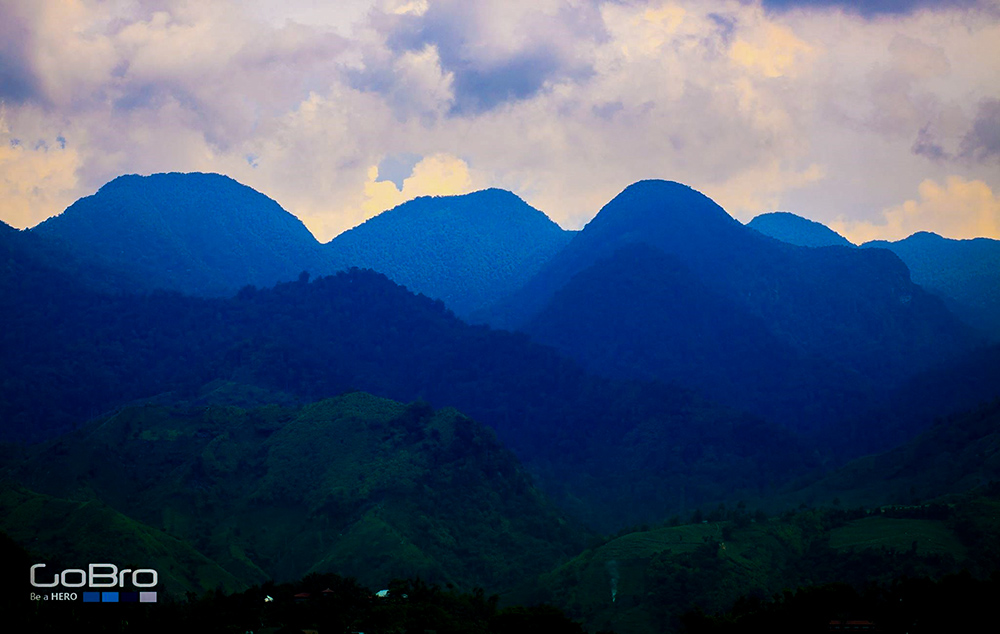


By Fr. Manuel J. Montesclaros, SJ
17th Sunday in Ordinary Time
July 26, 2015
There is something with going up on a mountain. It makes one see things from a different, even wider and better perspective. In our Gospel this 17th Sunday of Ordinary Time, St John narrated to us that “Jesus went up on the mountain…When Jesus raised His eyes and saw that a large crowd was coming to Him, He said to Philip, ‘Where can we buy enough food for them to eat?'”
Up on the mountain, Jesus saw. What did He see?
He saw a large crowd was coming to Him. He saw their need. In His seeing them and their need, He desired to provide what was enough for them. He saw Philip as well. Upon seeing Philip, Jesus asked him a question. St. John was very explicit in his narration. Jesus asked him a question in order “to test him, because He Himself knew what He was going to do.” In seeing Philip, Jesus wanted him to see the large crowd the way He saw them. He was teaching him to become like his Master.
In the parallel account from the Gospel according to St. Mark, he described the episode this way, “When Jesus went ashore, He saw a large crowd, and He felt compassion for them because they were like sheep without a shepherd” (Mark 6:34). It seemed Jesus was teaching Philip a way of seeing, a seeing that touched the heart and moved it with compassion, a compassion that would challenge one to be resourceful and be creative to translate it into an appropriate response to the situation at hand.
Another disciple, Andrew the brother of Simon Peter, must have pleased Jesus for being resourceful. Like Jesus, he saw the crowd and their need. He sought for what was available there and then: “There is a boy here who has five barley loaves and two fish; but what good are these for so many?”
It seemed Andrew’s resourcefulness (though he was realistic enough to acknowledge “what good are these for so many”) and the boy’s generosity were enough for Jesus to provide a banquet for God’s hungry people. And so He said, “Have the people recline.”
And so Jesus set God’s bounteous table for His hungry people out of “a great deal of grass in that place,” out of Andrew’s resourcefulness and the boy’s “five barley loaves and two fish.”
It seemed that Jesus was teaching Andrew to make use of human resourcefulness, not to be overwhelmed when things look humanly impossible and at the same to keep faith and trust in God’s providence. “Look at the birds of the air; they do not sow or reap or store away in barns, and yet your heavenly Father feeds them. Are you not much more valuable than they?” (Matthew 6:26).
When the people had their fill, Jesus again saw them. In seeing their reaction, “Jesus knew that they were going to come and carry Him off to make Him king.”
How did Jesus respond to what He saw and understood about the people’s reaction after having been fed by Him?
“He withdrew again to the mountain alone.” He wanted to see the situation from a different, even wider and better perspective, i.e., from His Father’s.
On this 17th Sunday of Ordinary Time, let us go up the mountain with Jesus. Let us beg for the grace to see as Jesus sees. Together with Philip, may our seeing lead us to compassion, a compassion that moves us to an appropriate response to the situation at hand. Together with Andrew, may we use our human resourcefulness and even in limit situations, may we keep faith and trust in God’s providence. Together with the boy, may we give generously even with the meager that we have. Like them, may we be privileged participants and witnesses of how God in Jesus our Good Shepherd sets a bounteous banquet for His hungry people. More importantly, may we learn from Jesus to regularly withdraw to the mountain alone, especially when pressed with pressures by people around us, so that we may see the situation from a different, even wider and better perspective, i.e., from His Father’s. Amen!